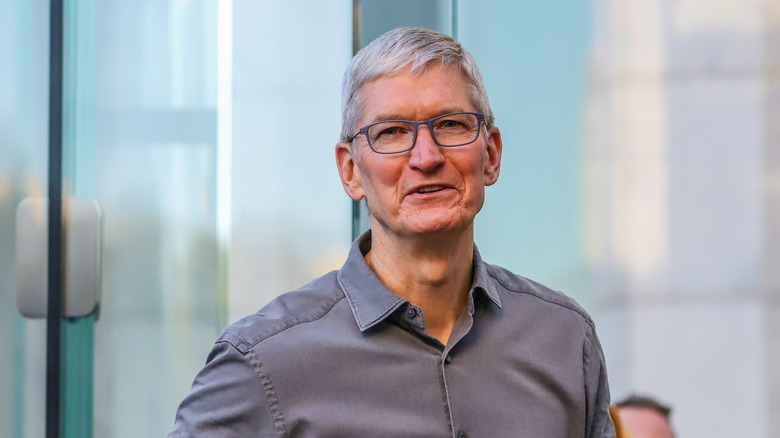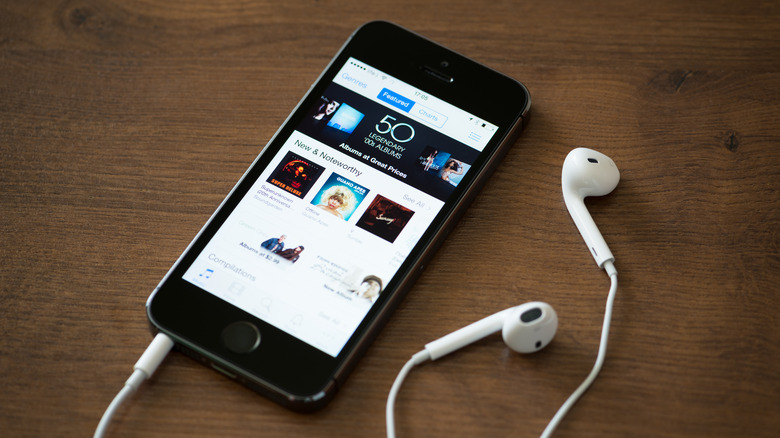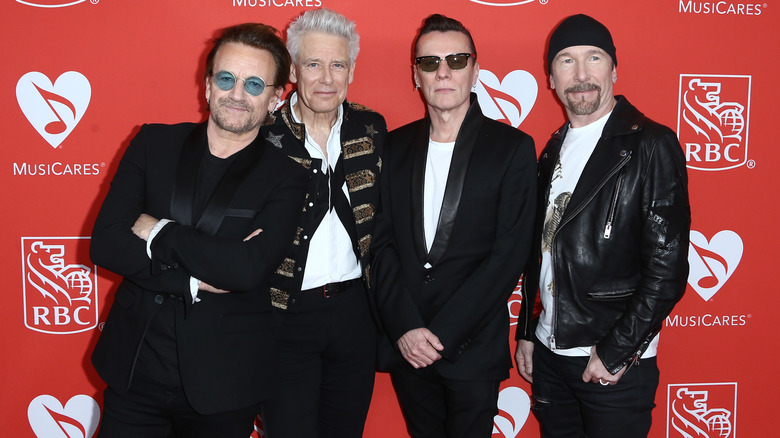Bono Is Sorry Apple Made You Download A U2 Album
Personal privacy and deciding exactly what is and what isn't installed on devices you've paid for are both long-running issues in the world of technology. If you've purchased a phone or computer, there's a good chance it's included a few programs you didn't want. This is known as "bloatware" and, while annoying, can usually be uninstalled and forgotten about shortly after purchase.
Rarely do programs show up after you've been using the phone for a while but are usually packaged with an update. Most of the time, that's because the company that made your phone's OS has a new feature or App and it can be quite helpful. Unfortunately, in at least one case, it wasn't a new app. It was an album by a band which can fairly be described as the musical version of divisive yeast spread Marmite. You're either a fan, or they make you cringe. U2 was formed in Dublin in 1976 when singer "Bono" and guitarist "The Edge" teamed up with two mates no one can actually name. Bono himself is no stranger to controversy. The Irish front man has lectured the public on climate change on several occasions while at the same time paying for a first class ticket on an international flight for a hat he wanted to wear (via Showbiz Cheat Sheet). While you may think destroying the planet for future generations with your headwear choices is bad, there was a time in 2014 when Bono really crossed the line.
The opinion-splitting singer colluded with Apple to have U2's album, "Songs of Innocence," automatically downloaded to people's iPhones without their consent.
Apple paid $100 million for the album
Bono and his band didn't give the album away for free. The singer admitted that he had convinced Tim Cook to pay the band over $100 million for the rights to force the album on all Apple customers. While explaining the events in 2014, Bono said: "We went to Apple, and we said look: we're not interested in free music. We think music is undervalued. It's a sacrament, as far as we're concerned."
On paper, this was a shrewd move. Spending $100 million to gift an album to half a million people works out at roughly $0.20 per copy. The musical compilation in question would eventually be named Rolling Stone's "album of the year" partially due to the publicity surrounding the giveaway, with the magazine stating: "There was no bigger album of 2014 — in terms of surprise, generosity and controversy." The Edge described the whole scenario ad "disruptive," "subversive," and "punk rock." However, it's not all about price per unit and awards won. While great in theory, in reality, it was one of the biggest PR backfires of the decade. Cook, in deciding to go along with U2's suggestion, essentially paid eight figures to annoy and alienate his customer base.
The fact it was on an iPhone makes things worse
Beyond the issue of consenting to what happens to your devices and not liking U2, there are other problems that were raised by the incident. Space on iPhones comes at a premium. At the time, Samsung's flagship devices featured removable storage. So if your phone was getting a little bit full you could buy an SD card and have hundreds more gigabytes to play with. Apple avoided that option, meaning its users pay a premium for a model with more internal storage and are forced to delete apps, pictures, videos, and music when that storage gets full.
A good chunk of premium phone real estate was taken up by an album people may not have wanted. And for some, simply deleting the album wasn't enough. They wanted U2's 2014 release out of their "purchase history" altogether. The situation was a bit unique, and totally erasing "Songs of Innocence" from your Apple phone or iPod required a special tool Apple was forced to create during the backlash. To use the tool, people had to visit a page on the iTunes website that contained a "Remove Album" button. The page also contained text which made it clear that if you clicked the button, the album would no longer be in your library and, after a deadline had passed, you wouldn't be able to download it again for free.
Bono apologizes, sort of
Bono actually gave a half-hearted apology during a Facebook interview saying: "Oops, I'm sorry about that. I had this beautiful idea and we got carried away with ourselves. Artists are prone to that kind of thing: [a] drop of megalomania, touch of generosity, dash of self-promotion and deep fear that these songs that we poured our life into over the last few years mightn't be heard. There's a lot of noise out there. I guess we got a little noisy ourselves to get through it," according to Rolling Stone.
Eight years on, and Bono has reflected on the situation in his new biography. While he doesn't actually say the word "sorry" he does take responsibility for the whole affair and accepts it was a mistake. As Variety reports, Bono writes: "At first I thought this was just an internet squall, but quickly realized we'd bumped into a serious discussion about big tech. I take full responsibility. Not Guy O, not Edge, not Adam, not Larry, not Tim Cook, not Eddy Cue. I'd thought if we could just put our music within reach of people, they might choose to reach out toward it. Not quite."
Although almost a decade has passed, the "Songs of Innocence" situation still stands out as a shining example of big tech overreach. However, during that time the largest tech companies have gotten even more powerful, and we all have at least one of them involved in our lives in some way or another. While the likes of Google, Apple, and Amazon certainly make our lives convenient, they're also capable of doing a lot worse than forcing you to download an album from a band you're not too keen on.



